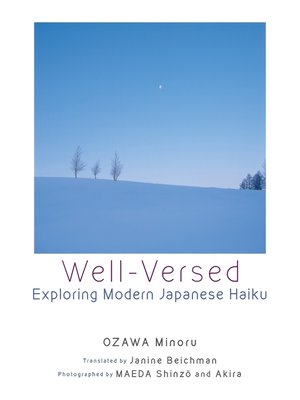
Sign up to save your library
With an OverDrive account, you can save your favorite libraries for at-a-glance information about availability. Find out more about OverDrive accounts.
Find this title in Libby, the library reading app by OverDrive.



Search for a digital library with this title
Title found at these libraries:
| Library Name | Distance |
|---|---|
| Loading... |
※この商品はタブレットなど大きいディスプレイを備えた端末で読むことに適しています。また、文字だけを拡大することや、文字列のハイライト、検索、辞書の参照、引用などの機能が使用できません。
This volume of seasonally-arranged poems is a guide to the appreciation and enjoyment of the great variety of modern Japanese haiku. From turn-of-the-century masters to poets of today, 300 of Japan's best modern haiku are introduced by Ozawa Minoru, a leading contemporary haiku poet and critic. Each of the poems, many of them scarcely known, is sensitively discussed together with the background of the poem and the relations between the poets.
The volume includes poems from the end of the century through the beginning of the twenty-first century by the most important writers of modern haiku. Alongside these are works by well-known novelists and other cultural figures who were not professional haiku poets but for whom haiku was an important part of their lives, such as Kubota Mantarō, Akutagawa Ryūnosuke, and Natsume Sōseki. The book also features beautiful seasonal photographs at the beginning of each chapter.
This volume of seasonally-arranged poems is a guide to the appreciation and enjoyment of the great variety of modern Japanese haiku. From turn-of-the-century masters to poets of today, 300 of Japan's best modern haiku are introduced by Ozawa Minoru, a leading contemporary haiku poet and critic. Each of the poems, many of them scarcely known, is sensitively discussed together with the background of the poem and the relations between the poets.
The volume includes poems from the end of the century through the beginning of the twenty-first century by the most important writers of modern haiku. Alongside these are works by well-known novelists and other cultural figures who were not professional haiku poets but for whom haiku was an important part of their lives, such as Kubota Mantarō, Akutagawa Ryūnosuke, and Natsume Sōseki. The book also features beautiful seasonal photographs at the beginning of each chapter.







